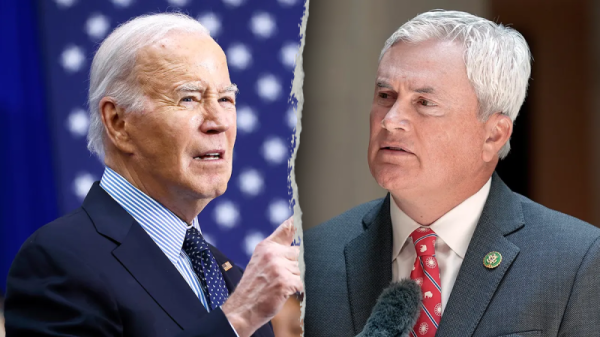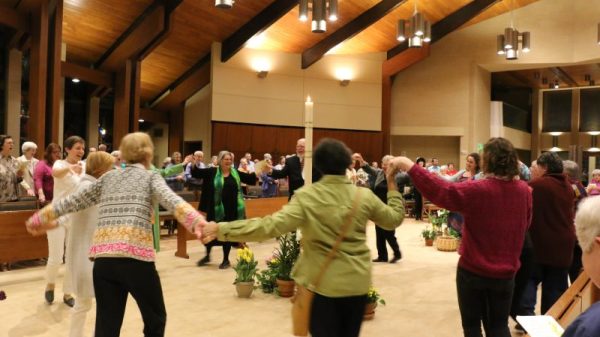David Pryor, an Arkansas governor and U.S. senator who rose to prominence in the 1970s as part of a wave of moderate “New South” Democratic leaders and who became known on Capitol Hill for his work on behalf of senior citizens and helping create the Taxpayer Bill of Rights, died April 20 at his home in Little Rock. He was 89.
The death was confirmed by Ernie Dumas, former chief political reporter for the Arkansas Gazette and a friend of Mr. Pryor’s. No cause was noted.
Following in a long family tradition of public service, Mr. Pryor spent his entire career in politics except for a post-college stint as a self-described “crusading” small-town newspaper publisher and editor. His two terms as governor — from 1975 to 1979 — were sandwiched between those of fellow Democrat reformers Dale Bumpers and Bill Clinton, and he helped the state pivot away from its segregationist past.
“I cite him as one of the major reasons why Democrats held on in places like Arkansas much longer than they did in any other Southern state,” said Angie Maxwell, director of the Diane D. Blair Center of Southern Politics and Society at the University of Arkansas. “He made Arkansas punch above its weight in terms of power and influence.”
Mr. Pryor launched his political career in 1960, serving six years in the Arkansas House before winning a special election for the U.S. House, followed by two full terms. In Washington, looking for a cause to distinguish himself, he gained national exposure in 1970 by railing against the treatment of the elderly in nursing homes, saying he had visited a dozen without identifying himself as a congressman and found their operations understaffed and often uncaring.
“I have nothing against profit‐making,” he told the Associated Press at the time, “but I am against exploitation. Profits are booming, prices are rising and service is not improving.”
The problem, he added, was that oversight responsibilities for the nursing home industry spread across nearly two dozen federal agencies and congressional committees. “Everybody seems to look only at his little piece of the picture,” Mr. Pryor said. “That’s why I think there is a pressing need for one committee to go into the whole matter.”
When House leadership, citing other priorities, denied him funding to set up a new panel, he established what he called two “government in exile” trailers on a street near the Rayburn House Office Building — room for the 15 volunteer college students and senior citizens who worked on his unofficial “Committee on the Aging.”
Although he was soon to leave the House to make a Senate run, Mr. Pryor garnered critical early congressional support for the creation in 1975 of the House Select Committee on Aging. Until it was shuttered in 1993, the committee held hearings on elder abuse and other related topics concerning older Americans.
Mr. Pryor lost a close primary race for the U.S. Senate in 1972, nearly ousting the segregationist 30-year incumbent John McClellan, but two years later, he defeated Orval Faubus, another notorious civil rights foe, who was trying for a comeback as governor.
Maxwell said Mr. Pryor kept Arkansas on a balanced path between economic growth and environmental protection and made steps forward in gender and racial equality by naming minorities and women to important posts throughout state government, including the first Black and female judges on the Arkansas Supreme Court.
After two popular two-year terms as governor, Mr. Pryor ran successfully for the Senate in 1978. He rose to chairman of the chamber’s Special Committee on Aging, where he focused on controlling prescription drug prices. In addition to addressing the concerns of seniors, an important voting bloc, he remained a favorite of constituents with his criticisms of waste, fraud and abuse among government contractors and what he said were astronomical procurement costs.
Mr. Pryor was chief sponsor of the 1988 Taxpayer Bill of Rights, which conservative commentator James J. Kilpatrick likened to a “Miranda rule for the people” for those under audit by the IRS. Mr. Pryor said his legislation, designed to extend rights available to taxpayers involved in disputes with the IRS, would help fix “a tax system that people fear and distrust.” His efforts were at the forefront of a national taxpayer rights movement.
Mr. Pryor overwhelmingly won his third term in the Senate in 1990, but he had a heart attack the next year and heart bypass surgery the year after that. He did not seek reelection in 1996, when Rep. Tim Hutchinson became the first Republican to win a U.S. Senate seat in Arkansas since Reconstruction.
David Hampton Pryor was born Aug. 29, 1934, in Camden, the county seat of Ouachita County in south-central Arkansas. His father was a county sheriff, as was his grandfather. His mother ran unsuccessfully for county circuit clerk in 1926, making her among the first women to seek elective office in the state, and later served 15 years as an elected member of the Camden school board.
Mr. Pryor worked as a U.S. House page in 1951, when he was 17; before his senior year at the University of Arkansas he spent the summer of 1956 delivering mail on Capitol Hill. After graduating with a bachelor’s degree in political science, he married Barbara Lunsford, and they moved back to Camden, where he started and edited a weekly newspaper, the Ouachita Citizen.
For the four years he was publisher, he challenged Gov. Faubus’s segregationist stances. He editorialized in favor of sending in federal troops when Faubus sparked a crisis in 1957 by trying to prevent Black students from attending Little Rock High School. He later told the AP that his editorials were “an attempt to appeal to reason in a time of great emotions and stress in the state.”
At the paper, which he sold after a few years, he successfully championed a city-manager style of government and other good-governance measures, but he said he soon began to believe that he could have greater impact through making legislation. He was elected to the state House in 1960, at 26, and joined a group of young legislators pushing for reform in the state. He went back to school, receiving a law degree from the University of Arkansas in 1964.
Mr. Pryor described his personal life as marked by moments of turbulence. He was early in his term as governor when his wife moved out of the Governor’s Mansion in 1975, saying she was exhausted after 18 years of supporting her husband’s ambitions.
“He understood, which was good,” she later told The Washington Post. “At first he was shocked, because I’d never questioned him and I’d never let him down. But after he understood, we spoke to the boys and he told them, ‘It’s her turn.’ We talked to them separately until they understood.”
She spent nearly two years living elsewhere in Arkansas, taking classes and helping a movie-producer friend make films, while Mr. Pryor stayed in the Mansion with their three sons. She returned to the family and the marriage continued. Survivors include his wife and sons, David Pryor Jr., Mark Pryor, a Democrat who served two terms as U.S. senator from Arkansas, and Scott Pryor; four grandchildren and a great-grandson.
In 1999, Mr. Pryor and his wife established the Center for Arkansas Oral and Visual History at the University of Arkansas. Mr. Pryor was later director of the Institute of Politics at Harvard University’s John F. Kennedy School of Government and, from 2004 to 2006, the inaugural dean of the University of Arkansas Clinton School of Public Service. He also wrote a memoir, “A Pryor Commitment” (2008), and was board chairman emeritus at the University of Arkansas.
Throughout his career, Mr. Pryor maintained an unfussy, easygoing persona that kept him popular with constituents. Working alone late one night at the governor’s office, he recalled to the Arkansas Democrat-Gazette, he said he answered a phone personally — only to find an agitated caller on the line demanding to talk to someone “no lower than the governor himself.”
“Ma’am, there is no one lower than the governor himself,” Mr. Pryor responded.






































